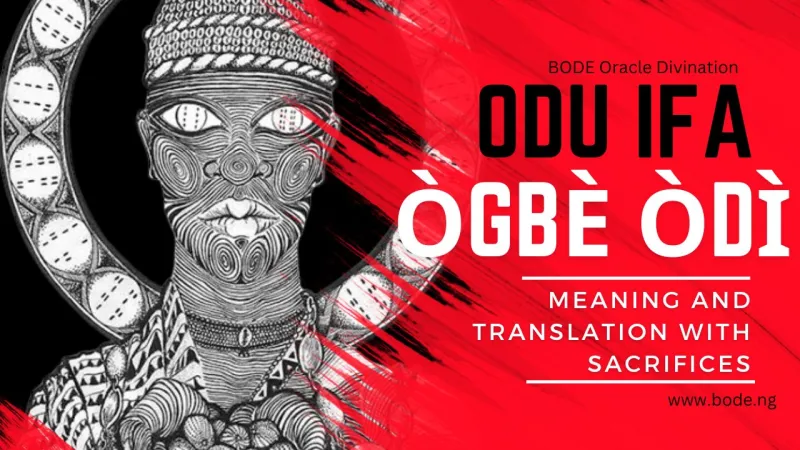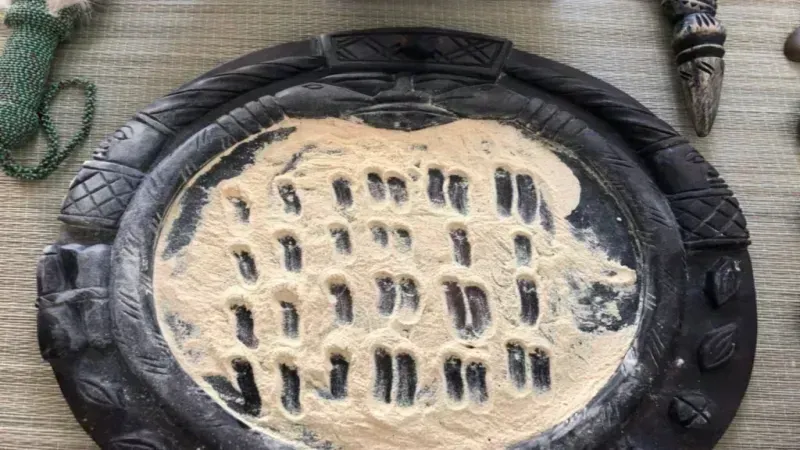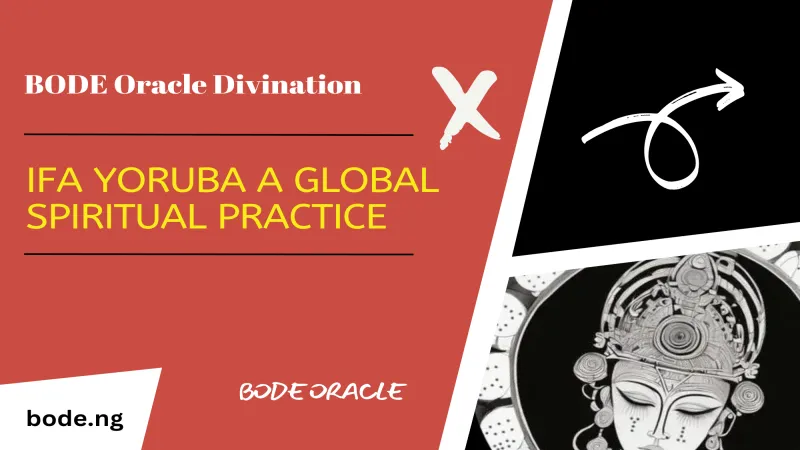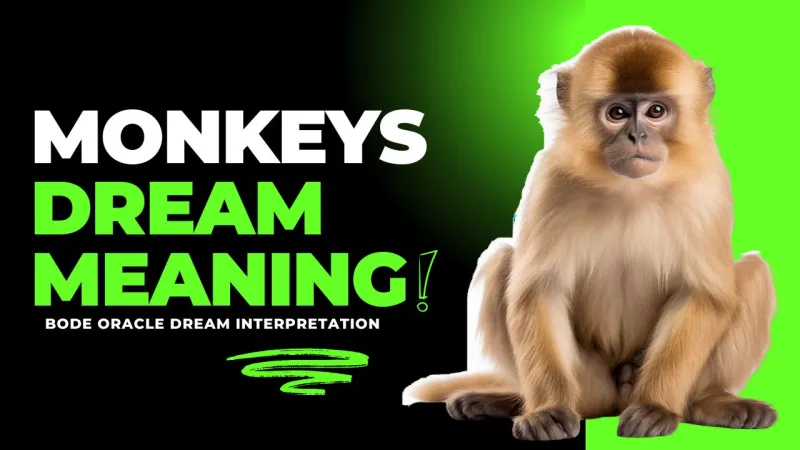Ogbe Odi also known as Ogbe Di, or Ogbe Idi emphasizes the importance of making sacrifices to achieve stability and peace, whether in personal life or relationships. Ogbe Odi advises against neglecting spiritual guidance, highlighting the need for compliance with Ifa's wisdom to avoid hardship.
Ogbe Odi, Ogbe Di: Ifa for Olukonjo Who is Seeking a Child
Today is full of challenges, Ogbè-Dì
Tomorrow is full of challenges, Ogbè-Dì
The large bird uses its wings to fly with grace
The inexperienced one (Òpé) carries the burden awkwardly
This was the Ifa cast for Olukonjo
Who was suffering from infertility
She was told to offer a sacrifice so she could become a mother.
The Olukonjo that Ifa refers to is a woman who could not conceive a child. Each month, she would experience her menstrual cycle without fail, and her hopes of having a child were constantly dashed.
Olukonjo is not naïve and understands that what she is experiencing goes beyond the ordinary. One day, her situation worsened, and she sought the help of a Babalawo (diviner).
A divination was cast, and she was told that she would conceive a child, but only if she made the prescribed sacrifice. She agreed and offered the necessary sacrifice. After the ritual was performed and accepted by Ifa, she waited.
Soon, her menstrual period, which had been so regular, ceased. On the first day, second day, and eventually, it never came again. She realized she was pregnant. When the time came, she gave birth to a child.
Thus, Olukonjo’s journey to motherhood was successful. In appreciation, she praised her Babalawos with the following words:
Today is full of challenges, Ogbè-Dì
Tomorrow is full of challenges, Ogbè-Dì
The large bird uses its wings to fly with grace
The inexperienced one (Òpé) carries the burden awkwardly
This was the Ifa cast for Olukonjo
Who was suffering from infertility
She was told to offer a sacrifice so she could become a mother.
The blood we see monthly must end.
Let her offer the sacrifice and become a mother.
Divination Instruction: You must consult an expert Babalawo or Iyanifa to prescribe necessary sacrifice for Infertility and your prayer will be answer.
Ogbe Odi, Ogbe Di: Ifa For Dundun Drum That Wanted to Be Favored Among Peers
Ogbé-Di
Ogbé-di
I will not use my words to jest
I will not use my words to bring illness
This was the Ifa cast for the Dundun drum
That was heading to the land of Oyo.
In ancient times, when the king of Oyo wanted to select a prestigious drum that would be played exclusively for him, he sent out a call to all type of drums to come to Oyo.
Before the appointed day, the Dundun drum sought the counsel of a Babalawo (diviner), asking how it could gain favor in Oyo and be chosen as the royal drum. A divination was cast.
It was revealed that Dundun would indeed be favored, but it had to offer a sacrifice. The necessary sacrifice was prescribed, and the Dundun drum made the offering. Afterward, a ritual was performed to seal the outcome.
On the appointed day, all the drums gathered at the palace in Oyo, and the king summoned each one to play before him.
The Bata drum played, the Gangan drum followed, and others too, but when the Dundun drum played, the sound resonated deeply with the king, in accordance with the Ifa divination.
The Dundun drum’s performance pleased the king the most, and it was declared that the Dundun drum would be the only one played for the king of Oyo.
Since then, the Dundun drum is the one played for the Alaafin of Oyo, and it has become a symbol of prestige in the royal court.
Divination Instruction: Ifa advises that whoever receives the Ogbé-Di should make the necessary sacrifice so that they may be honored and distinguished among their peers.
They must consult an expert Babalawo or Iyanifa to prescribe necessary sacrifice to be favored among their peers.
Ogbe Odi, Ogbe Di: The Ifa of the Restless Dove Without a Place to Settle
Ogbé-Di
Ogbé-di
This was the Ifa cast for the restless dove
Who will wander aimlessly across the earth
It was told to offer a sacrifice for success.
The dove in this Ifa verse has no place to settle and no peace of mind. It went to consult with a Babalawo (diviner). The dove was advised to offer a sacrifice for success.
The sacrifice was prescribed, but the dove, in its stubbornness, refused to offer the sacrifice.
As a result, the dove became one without a home and without any success. If you see the dove here today, by tomorrow it will be somewhere else. It will always wander. The verse goes:
Ogbé-Di
Ogbé-di
This was the Ifa cast for the restless dove
Who will wander aimlessly across the earth
It wandered into the territory of a dog
It wandered into the footsteps of a chicken
It said, "I am a restless dove,
And I have never found a place to call home."
Divination Instruction: Ifa warns that whoever receives the Ogbé-Di must not be disobedient. They must consult an expert Babalawo or Iyanifa to prescribe sacrifice to find a stable place of peace.
For a woman, this sacrifice will ensure a secure home. For a man, the sacrifice will prevent him from moving from one woman to another and will grant him stability in his relationships.
Ogbe Odi, Ogbe Di: Ifa Jaramo Tesun for Orunmila Seeking Peace of Mind
Ifa declares that it is calling for peace of mind for the one who receives Ogbè-di. Ifa states that a sacrifice must be offered.
The Òró Jaramo Tesun
This was the Ifa cast for Orunmila
Who was instructed to appease the restless spirit of Esu Odara's mother.
Orunmila, when his mind was restless and he had no peace, called upon the Babalawos (priests). He presented his concerns to them, and they consulted Ifa. Ifa revealed that Orunmila would not find peace until he made an offering to the restless spirit of Esu Odara’s mother.
Orunmila followed this advice and made the required offering. After the sacrifice, his mind became calm, and he began to experience peace. He praised the Babalawos, the Babalawos praised Ifa, and Ifa praised Eledumare, the Supreme God:
The Òró Jaramo Tesun
This was the Ifa cast for Orunmila
On the day he was instructed to appease the restless spirit of Esu Odara’s mother.
Divination Instruction
Ifa indicates that someone has recently passed away or is about to die for the person who receives this Odu.
It is important to go to the deceased burial ceremony, give alms and perform the necessary rites. A sacrifice should be made to ensure that the deceased can rest in peace.
The person that received this odu in Ifa divination should consult a professional Babalawo or Iyanifa to help them with this sacrifice. Ifa advises offering a dog as part of the sacrifice.
YORUBA Translation
Ogbe Odi, Ogbe Di: Ifa Olukonjo Tio n Wa Omo
Òní wíríwírí Ogbè-Dì
Òla wiriwiri Ogbè-Dì
Ẹyẹ nlá ní fi apá sògan
Òkú Ópé nii hú mú l’órùn
A d’Ifá fún Olúkònjọ
Ti yí óò ma ṣ’óroú l’ósoṣú
Wón ni kó rúbọ, kó lè baá di ọlómọ.
Olúkónjo tí Ifá ńsọ yìí, Obinrin ni, kò rí ọmọ bi ní, oṣoṣú níí maá ri éjé, tíí maá ṣe ǹkan oṣú. Ojú ọmọ pọ gidi. Ó di ọjó Kan, ó mú ééji kún ééta, ó lọ oko awo.
Wọn da’fá, wọn ní yí Óó bí’mọ wipe ẹbọ ní kó rú. Yí óò dí ọlọmọ rere. Wọn yàn àn l’ebọ ó rú’bọ. Lẹhin ìrúbọ, wón ṣe Ifá fún, ó jẹ ẹ.
Kò pẹ, ákókó tíí má ri ǹkan oṣú dé, ó retí wipé bóyá òun óri, jọ Kiníí, Ojó keji, títí kò rí ǹkan oṣú, ó tí di oyún.
Ó dí ákókó ibimọ, ọmọ ló fi bi. Bi Olúnkónj ṣe bẹrè sí ni bí’mọ niyi. Ò ní béè l’àwọn Awo òun wí:
Òní wíríwírí Ogbè-Dì
Òla wiriwiri Ogbè-Dì
Ẹyẹ nlá ní fi apá sògan
Òkú Ópé nii hú ọmú l’órùn
A d’Ifá fún Olúkònjọ
Ti yí óò ma ’óroṣú l’ósoṣú
Wón ni kó rú’bọ, kó lè baá d’ọlómọ
Òwó ẹjẹ ta ńṣe l’ósoṣú yìí.
Ẹ jẹ ki rù’bọ kó d’ọmọ
Ifa Dundun Tio Fe Gbayi Lawujo Ilu
Ogbé-Di
Ogbé-di
Èmi ó f’órò mi ṣ’áwádà
Èmi ò f’òrò mi sayanrun
A d’Ifá fún dùndún
Ti ńl s’óde Óyó.
Ní ayé atijọ, ní ìgbàtí ọba l’ọyòó fé yan ìlú tí yí óò ma lu ààyò, ilù tí yí óò gbayì tí wọn ó ma lú fún ọba l ‘Óyóó, ni ó bá ránṣẹ pe gbogbo ilú sí Òyó.
Ki ojó tó pé ni dùndún bà gbera,ò lọ s’oko awo, ó bèrè bi òun ó ṣe gbayi ni Óde Òyó, tí wọn yó fi yan óun lááyó lọhùn ló wa dá Ifá si.
Wòni ní yí óò gbayi, wọn ó si yá án láayó, wípe ẹbọ ni ki ó rù.
Wọn yànán l’ẹbọ; ó rú’bọ. Wọn ṣe Ifá fun, ojó tí wọn dá pé, gbogbo ilù lọ s’ode Oyó, ni Ọba l’Óyòó bá ńpe wọn ni òkòòkan láti wá má a dún.
Bata bọ sibẹ, gangan àti bẹ bẹẹ’lọ bó si. Ó kan dúndún, gegebi ìrúbọ Ifa, Ilù dúndún ni ò dùn l’ètí ọba l’Óde Òyó. Ìdí ré ti ó fi jé wipe dúndún ni wọn ma ńlù fún Ọba l’Óyòó. Ìlú dúndún ni Aláàfin Òyó n jó.
Àṣẹ: Ifá pé ẹni ti ó dá Ogbé-Di, kí ó rú’bọ kí ó lé baà niyi laarin Àwọn egbe ẹ ré yoku.
Ogbe Odi: Ifa Adaba Susu ti Ko ni Ibujoko
Ogbé-Di
Ogbé-di
A d’Ifá fún àdàbà ṣùṣù
Ti yí óò ma ná’jà kiri ayé
Wọn ni kí ó rú’bọ áṣeyọri
Àdàbà ni Ifá ńsòrò nipa rè. Àdàbá tí Ifá wì yìí kò ní ibùjòkòó, kò sí ifọkànbalè fun, ló bá l oko awo. Wón ní kó rù’bọ àeyọrí,
wọn yàn án l’ébọ, Àdàbà fi gbigbó ṣe àìgba, kò rú’bọ.
Bi àdàbá ṣe di aláìní ibùgbé nìyí, tí kò sì ní àṣeyorí Kankan, tí a bá rí àdàbà níbíyìì l’ónìi, ibòmiràn ni a ó ti ri l’ọla. Ò ní:
Ogbé-Di
Ogbé-di
A d’Ifá fún àdàbà ṣùṣù
Ti yí óò ma ná’jà kiri ayé
Òun kiri dé egbá ajá
Òun kiri dé ẹsè adiẹ
Ò ni òun àdàbà kelúkelú
Ó ni kò sílè t’òun kò dé rí.
Àṣẹ: Ifá pé ki ẹni ti ó dá Ogbè-dí ki o má ṣe àìgbòràn, kí ó sì rú’bọ kí ó lè ba ní ibújókòó rere ti o ba jee Obinrin, bi o si jee Okunrin ko rubo, ko yee ma si kuro lori obinrin kan si obinrin keji. Ki o le laaya ni odee ree ti yio ba ka le.
Ogbe Di: Ifa Jaramo Tesun Fun Orunmila To n Wa Ifokanbale
Ifá pé òun pé ire Ifọkànbalẹ fún ẹni tí ó dá Ogbè-di. Ifá pé ẹbọ ni kó rú
Òró járámò tẹsùn
A d’Ifá fún Òrúnmìlà
Ti yí óó sìn ‘kú àìsinmí iyá Èṣù Òdàrà.
Òrúnmìlà ní ó funra nigbati ọkán rè kò bale, tí kò ní isinmi, ni ó bá pe àwọn Awo, ó gbé òké ìpònrì re ka’lé, àwọn Awo bá bèrè lowo Ifa.
Wọn ní Òrúnmìlà yi óò ni isinmi, wipe kì ó lọ sìn’kú àìsínmi iyá Èṣù Òdàrà, kó ṣètútù fún iyá Èṣù Òdàrà. Ni Òrúnmìlà bá ṣe ètútù yii, ọkàn rè bèrè sí ní balẹ. Ò bèrè sí ní Isinmi. Ó nyin Awo, àwọn Awo nyin Ifá. Ifá nyin Elédùmarè ọba l’ọrun:
Òró járámò tẹsùn
Ló d’Ifá fún Òrúnmìlà
Ni’jọ tí yí óò sìn ‘kú àìsinmí iyá Èù Òdàrà.
Àṣè: Ifá ni òkù kan óò kú tabi eyan kan sese ku laipe fun eni ti odu yii jade fún, tó yẹ kí ò ná’wò nibẹ. Kó ṣe sàárà fún òkù náá kó lè ni isinmi. Ifá pé kó fi ajá kan rú’b.



